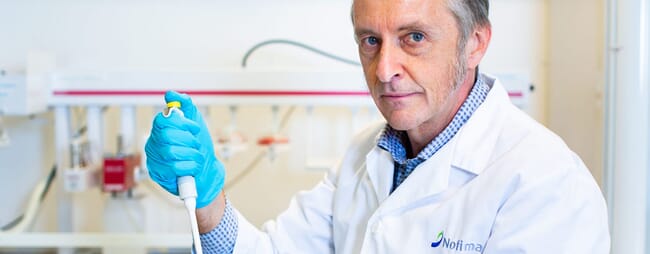Pancreas disease (PD) is caused by a salmonid alphavirus (SAV). The disease attacks the pancreas, and also affects the heart in salmon, and causes severe financial losses for the aquaculture industry.

© Joe Urrutia, Nofima
Over the course of the four-year SalmoResist project scientists from organisations including Nofima, SalmoBreed, Mowi, Salmar, the Roslin Institute, the Norwegian University of Life Sciences (NMBU) and VESO have been working to find the specific genes that produce high tolerance or resistance regarding the viral disease.
According to a press release from Nofima, they are now getting close.
“In the past, our understanding of specific genes and what contributes to resistance has been limited. Now, through several different approaches, we have found out more regarding how fish biology works in relation to disease resistance,” says Nofima senior scientist Nicholas Robinson.
As a result, salmon with the genetic material that makes them most resistant to disease can be selected.
To identify the particular genes, scientists use gene markers. These markers enable them to select broodstock with the desired characteristics.
“The amount of knowledge we have gained so far has enabled us to have much greater accuracy for increasing PD resistance in salmon,” says Robinson.
The scientists have infected salmon families and used markers to find genes associated with resistance and clearance of the virus causing PD.
“We were able to determine the map location of the genes and also measure the amount of gene product produced in fish with high compared with low resistance. Controlled infectious propagation of salmonid diseases in water, and the possibility to conduct disease challenge tests on large families of Atlantic salmon, give us a practical model to use in order to investigate genes that influence resistance to this alphavirus,” explains Robinson.
He believes that the knowledge generated from salmon research can also provide important experience regarding the treatment or prevention of alphavirus disease in other animal species.
